Brian Gongol
Online crook of the week (January 13):
This classic example of phishing got by Gmail filters early this week. It's unusually good for a foreign phishing attack, in part because it was generated in Hong Kong, where English is an official language. The notes explain some of the cues you should use to recognize that this is a criminal attack.
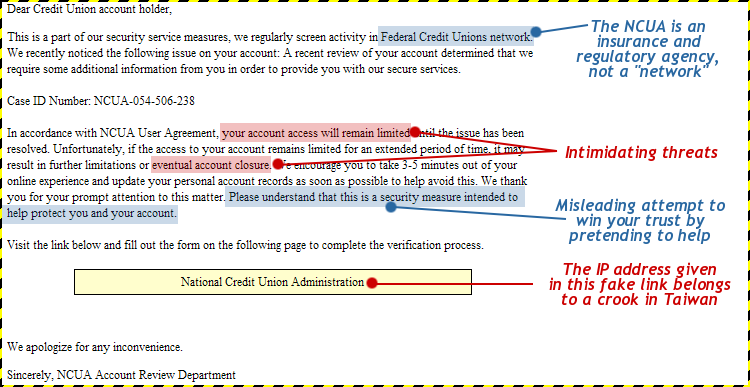
Don't be fooled: Never respond to e-mail like this. If you think something may legitimately be wrong with your bank or credit union account, find your latest printed statement and call the telephone number given there.
Online crook of the week (January 20):
Another week, another phishing attempt:
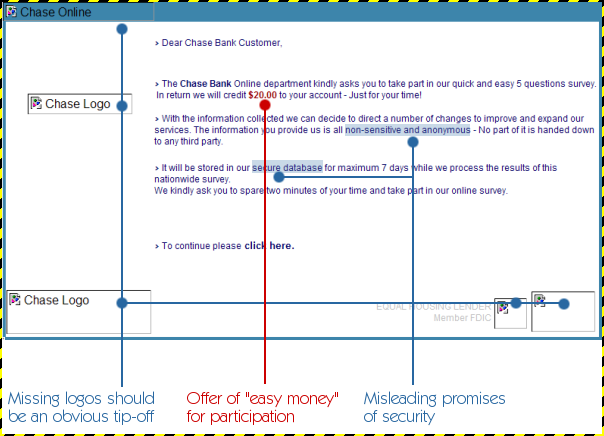
This disgusting example of crooked activity masquerades as a courtesy e-mail from Chase Bank, asking for your participation in an online survey. It contains several of the usual tip-offs of trouble, including broken image links, a fraudulent incentive ($20 in free money), and misleading promises of security. But if you respond to this e-mail, you won't get $20: You'll only have given away your credit-card information to a criminal.
Online crook of the week (January 27):
Don't buy drugs (prescription or otherwise) from anyone who sends you spam:

It's really inexcusable for people to respond to these kinds of solicitations. Not only are they offering drugs that you certainly can't be sure are safe, but they're also asking for your credit card information. There's just nothing good about these solicitations. The language errors highlighted here suggest the solicitation comes from overseas, meaning you have no real legal recourse against them, and the fact they show a different URL from the one you'd actually be going to is even more evidence these are crooks up to no good.
Online crook of the week (February 3):
If you get an e-mail that's supposedly from eBay telling you to change your password -- it's probably from a crook:
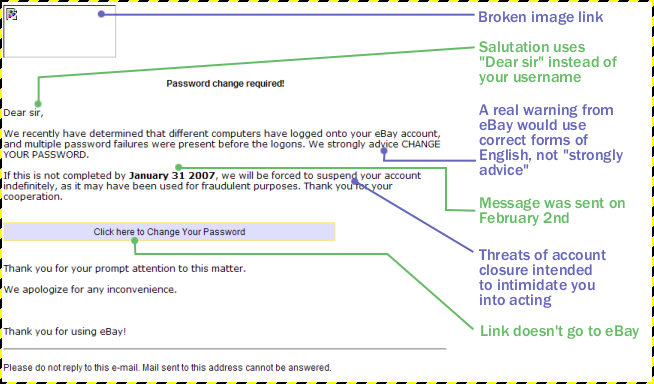
Online crook of the week (February 10):
The following message made it past the spam filters this week:
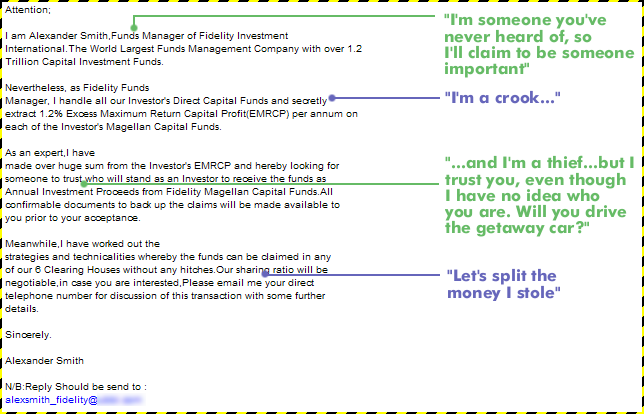
It's an extremely crude attempt at identity theft. Some idiot who can't even type correctly claims he's a multi-billion-dollar thief who needs your help absconding with lots of ill-gotten dough. And all he needs is for you to contact him so you can work out the details. For heaven's sake, if you fall victim to an attempt at identity theft that's this crudely-made, you'll fall for just about anything. Don't ever, ever, ever reply to a message like this.
Online crook of the week (February 17):
The following message made it past the spam filters this week:
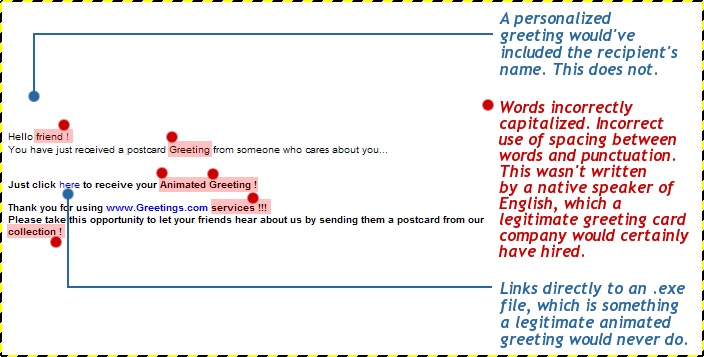
E-mail greeting cards in general may simply be more trouble than they're worth. Unless you know who sent it, don't open it -- and never, ever open up an executable file (the name usually ends in ".exe") you receive via e-mail.
